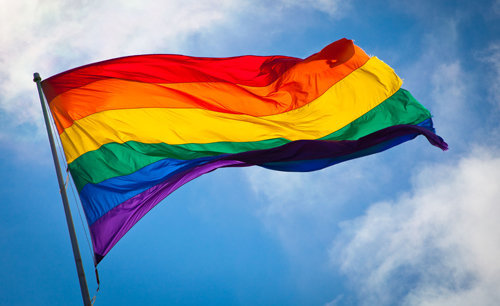
This was originally posted on .
As 2012 draws to a close and I reflect on the historic year that was, one of the things that I am most proud of is the role that African Americans played in helping to bring the freedom to marry for committed and loving same-sex couples to my home state of Maryland.
As is well-known, legislation extending the freedom to marry to same-sex couples was signed into law by Maryland Gov. Martin O'Malley in March, but before it could take effect, opponents gathered enough signatures to force a referendum vote on the November ballot.
What many people did not know is that nearly one in three voters in Maryland is African-American. On Nov. 6, Maryland, Maine and Washington became the first states to approve marriage for same-sex couples through a ballot initiative.
For me it was personal. Maryland is my birthplace. After 20 years of lobbying for LGBT rights as director of the ACLU Washington Legislative Office, I wanted to put the Murphy family on record in support of Maryland's Civil Marriage Protection Act.
In February, my brother Billy and I to urge its passage. We explained that principles of fairness and equality have long been core to our family identity. Our ancestor, John Murphy Sr., a former slave, started the Baltimore Afro-American newspaper 120 years ago, and the paper and my family's activism played a vital role in the civil rights movement for generations. Along with my niece Rebecca Murphy, Billy and I emphasizing the importance of extending the principles of fundamental fairness to those in the LGBT community.
Progress Achieved
I have witnessed first-hand the tremendous progress LGBT people have achieved over the past two decades. During my tenure as chief ACLU lobbyist, we fought hard alongside civil rights organizations for the inclusion of LGBT protections in federal hate crimes law. I also remember the heartbreak in 1993 over the creation of "don't ask, don't tell" and the joy over its repeal in 2010. Inclusion in the hate crimes statutes and ending the discriminatory barrier of DADT would not have been possible without the vigorous advocacy of African-American members of Congress.
Likewise, key to the success in Maryland was the support of the African-American community, including like Rev. Donte Hickman Sr. from Baltimore and Rev. Delman Coates from Prince George's County. In addition, the impact of President Obama's endorsement of marriage for same-sex couples in May was a significant breakthrough.
The Washington Post credited African Americans and Latinos as being critical "spurs" in this year's electoral victories for same-sex couples. Post-election analysis from the of the national exit poll found that black voters favored their state legally recognizing marriage for same-sex couples by 51 percent to 41 percent.
Where We Stand Now and Where We Go Next
Going forward, at the federal level and in the states, support from the African-American community and black legislators for LGBT people remains essential, as is also true for the Latino and Asian/Pacific-American communities. Some of the progress made would not have happened had the NAACP and civil rights icons like Rep. John Lewis (D-Ga.), Julian Bond and Rev. Al Sharpton not made the freedom to marry for same-sex couples a priority.
In the current Congress, there are 104 members of the LGBT Equality Caucus, including nearly 20 members of the Congressional Black Caucus. This number will climb at the start of the 113th Congress, which will see serving in the House (five) and Senate (one) than at any point in our nation's history. Among these new members will be the first openly LGBT representative who is also a person of color.
We are hopeful this exciting demographic shift will help fuel the passage of long-sought LGBT rights measures in Congress, including the Employment Non-Discrimination Act and the Student Non-Discrimination Act. Importantly, these bills enjoy tremendous support from members of the CBC, as well as the Congressional Hispanic Caucus and the Congressional Asian Pacific American Caucus.
As we take stock of the historic progress achieved and plan for the struggles still ahead, let's commit ourselves to remaining vigilant against strategies that seek to pit racial and ethnic minorities against the LGBT community (and vice versa).
This year's electoral successes for LGBT equality are a clear demonstration that the way to win -- both at the ballot and in the halls of Congress -- is by doing the work of bridge building and strengthening alliances within and across communities. African Americans and other communities of color have a key role to play in this work, and, as the example of Maryland in 2012 demonstrates, can be a decisive factor in its ultimate success.
Learn more about same-sex marriage: Sign up for breaking news alerts, , and .

